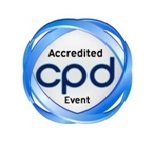
Tonia Crawford
Macquarie University, NSW, Australia.
Title: Tracing the development of rapport in intercultural nurse-patient interactions using discourse analysis
Biography
Biography: Tonia Crawford
Abstract
Good nursing practice is underpinned by effective communication. Communicative competence is required to build trusting relationships and the ability to accommodate, empathise and affiliate with patients (Candlin, 1995). There have been growing concerns from employers, regulatory agencies, as well as nurses themselves, regarding the English language and clinical communication skills of nurses from culturally and linguistically diverse (CALD) backgrounds (Chiang & Crickmore, 2009; Shen et al., 2012). Achieving English language proficiency and adapting to social and cultural aspects of their new country has been more difficult than previously recognised (Lum, Dowedoff, Bradley, Kerekes, & Valeo, 2015), however research has found that over time, CALD RNs adjust and develop communicative competence (Crawford, Roger & Candlin, in press). Examining communication using discourse analysis (DA) informed by linguistic frameworks add a different perspective to our understanding of communication processes in nursing. DA examines the practical aspects of communication: for example, speakers’ choices of vocabulary, grammar, intonation, how interactions are sequenced and how the content at each turn of talk is managed. This presentation will provide excerpts of naturally occurring interactions between registered nurses from CALD backgrounds and their patients. The development of rapport will be explained through the use of various strategies and linguistic features. By discussing and reflecting on discourse analytical findings, nurses can become more aware of communication strategies, and translate these understandings and skills into practice. This awareness can also be used to support nurses from CALD backgrounds who are developing English skills by expanding their repertoire of communicative resources, therefore helping to build rapport, patient satisfaction and safety.

